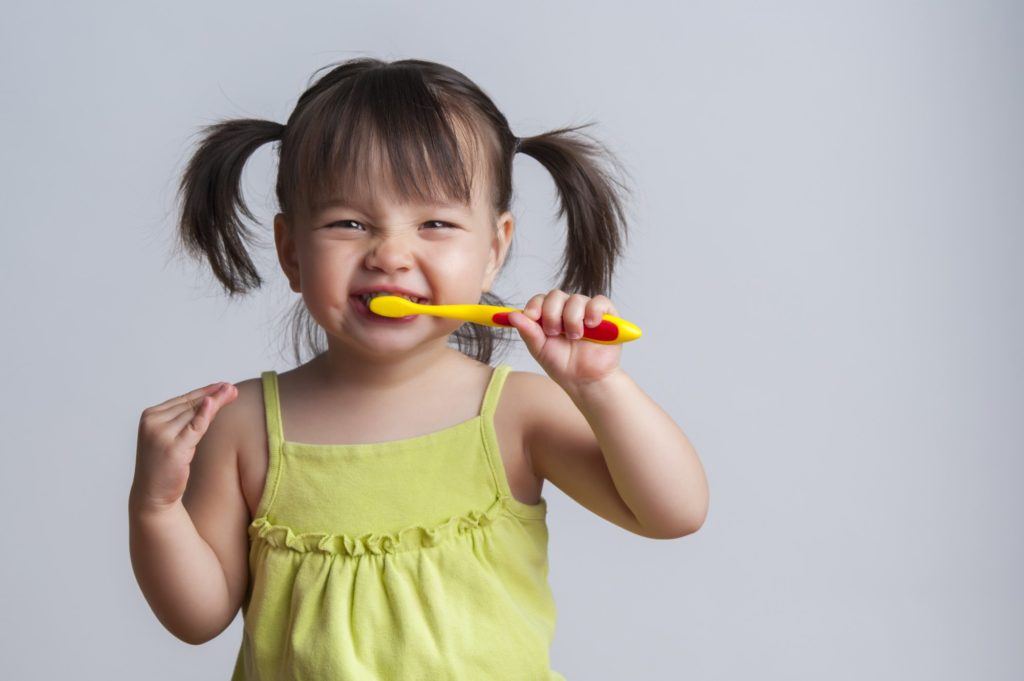
Tooth decay is the most common disease that affects children.
It doesn’t only affect their oral health, however. Studies have shown that children with tooth decay don’t perform as well as their peers in school.
The good news is that tooth decay is preventable. Proper dental care for kids is non-negotiable. As a parent, you must encourage and exhibit healthy habits yourself.
An oral hygiene routine will be your child’s best defense against future dental problems. The sooner you get your child accustomed to oral healthcare, the better.
Dental hygiene for kids can be challenging to navigate if you don’t know when, where, or how to start. Read on for all the tricks you need to know to make sure your child’s oral health is the best it can be.
When To Start Oral Hygiene for Kids
The best time to start a dental routine is as soon as they’re born, even though they won’t have a tooth for a few months.
You should see a pediatric dentist by the time their first tooth erupts. A good rule of thumb is to have their first visit by their first birthday.
You should plan on visiting the dentist every six months. This allows your child’s dental team to check their tooth development.
Be a Good Example
Monkey see, monkey do. Set the stage by practicing good oral hygiene yourself. It helps to create a routine your child will be less likely to resist in the future.
Make teeth brushing and flossing a part of the everyday routine you do together.
Start Sooner Than Later
You can begin caring for your child’s oral health before they even get their first tooth.
After feedings, you should wipe their gums with a soft cloth or a baby toothbrush. Don’t use toothpaste yet.
As soon as their first tooth comes in, you can zero in on their oral hygiene. Use baby toothbrushes that pop on top of your finger for those first few teeth. Use only a pea-sized amount of non-fluoridated toothpaste to avoid accidental swallowing.
Use Fluoridated Toothpaste
Once your children are around two, you can begin using a fluoridated toothpaste. This will help to prevent tooth decay and to ensure their teeth are developing as healthy as they can be.
Let Them Brush Themselves (With Supervision)
Once they reach their second birthday, it’s time to let them take matters into their own hands. You’ll, of course, need to supervise them every day for these early years. You might even want to brush their teeth for them after they’ve done it once.
It’s recommended that you brush for two minutes at a time, at least twice a day.
Tip: If your child is resistant to tooth brushing at this young age, make it a game. Pretend you’re looking for hidden treasures behind their teeth with the toothbrush.
Make it a Non-Negotiable Part of Their Daily Routine
School-aged children thrive on routine. Make before school and bed brushing and flossing a part of their daily routine. Join them in the bathroom and make your oral care something you do together.
Kids this age may think they can brush their teeth on their own. While that might be accurate for some children, it’s not always the case. Most don’t have the manual dexterity to brush their teeth properly until they hit age seven.
You should still oversee their brushing and flossing habits. Watch that they’re hitting all their teeth (even those pesky back ones) with their toothbrush. See that they’re flossing their teeth with the same enthusiasm they perform the floss dance.
As your children age, they’ll need less oversight from you. At this stage, they should be able to brush and floss without your ever-vigilant eyes watching their every move.
Focus on Food
Since everything your child eats passes through their mouth, a healthy diet is critical to oral hygiene. It’s never too early to focus on what your child is putting into their bodies for fuel.
Set an example by choosing healthier foods more often than not. Pack their lunches with nutritious choices. Opt for a mixture of whole grains, proteins, vegetables, and fruits they love.
You should try to limit how much sugar your little ones consume in a day. Soft drinks, cookies, candies, and pastries are common sources of sugar in a child’s diet. These foods provide little to no nutritional value and should be eaten infrequently.
Eating a healthy diet will help provide the nutrients necessary for tissues in the mouth to fight off infection. These tissues are critical in the fight against tooth decay and gum disease.
Try to stay away from sugary drinks and opt for water instead. Let your child choose a water bottle they’re excited about taking to school. Make sure it’s chilled and ready to go in their lunch kit every morning.
Choose a Dentist That They Click With
Choosing who oversees your child’s dental health is a big decision. Take your time deciding who will click best with your family. There are a lot of factors to take into consideration before making your decision.
We recommend choosing a dental professional who has pediatric dentistry experience. They have specialized training from two extra years of schooling. So they’ll know how to approach the unique oral healthcare needs of children.
Does your child suck their thumb or have a hard time giving up their pacifier? These habits can wreak havoc on developing teeth. A pediatric dentist will know what route to take to nip these potential problems in the bud.
Perhaps your little one is anxious at the thought of going to the dentist? Pediatric dentists pride themselves on creating an environment your child feels comfortable in.
Make your child’s first few visits to the dentist as stress-free as possible. Future visits are a breeze if they’re comfortable from the get-go.
Dental Care for Kids Matters
Solidifying an oral hygiene routine when your children are small is essential. The foundation for healthy gums and teeth in adulthood is laid in the early years of your child’s life.
With offices in Far North Dallas, North Dallas, and Frisco, our dental professionals will be happy to assist you with your dental care for kids. Contact us today to set up an appointment.
 (214) 453-2565
(214) 453-2565